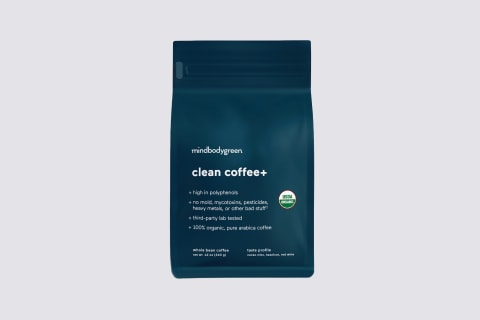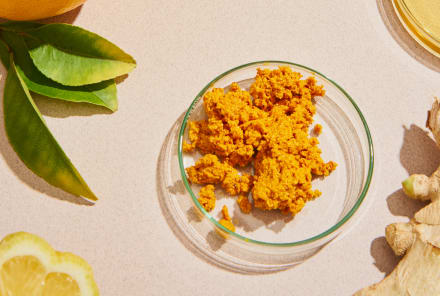Advertisement
Drinking Coffee Was Linked To A Lower Risk Of Heart Disease In People With Type 2 Diabetes


How many cups of coffee do you find yourself drinking a day? One? Two? Maybe more? Well, a meta-analysis of cohort studies published in Nutrition, Metabolism & Cardiovascular Diseases found that there's a specific number of cups that might have some favorable impacts on the risk of death and cardiovascular disease—especially in people with type 2 diabetes.
How many cups of coffee does it seem to take?
According to the analysis, which included data from 10 prospective cohort studies, with a total of 82,270 cases, researchers found that (compared with those who drank no coffee) drinking four cups of coffee per day was associated with a lower risk of death in patients with type 2 diabetes, with the most significant difference seen in the risk of death due to cardiovascular disease.
Previously, studies have found an inverse relationship between drinking coffee and the risk of death for the general population, but this study specifically considered the way it may affect patients with type 2 diabetes.
Some of the bioactive components of coffee have been linked with antioxidant and anti-inflammatory benefits, which may be a contributing factor in this research.
Does that mean you should drink that many cups of coffee a day?
If you're thinking that four cups of coffee sounds like an awful lot of caffeine, you're not wrong. Though it's not going to necessarily hurt you, given how differently people process caffeine, it might be too much. The researchers also point out that there's a need for more detailed research into factors like what exactly a cup of coffee is—does it have cream and sugar? Is it a cold brew? Espresso or drip? There's a lot of variation that may be at play and could really matter.
When it comes to the caffeine concern, strategies like microdosing can help make sure you don't end up too jittery if you are someone who's drinking that much, but it's certainly not the only way to manage the risk of cardiovascular disease.
Diet, beyond just preferred caffeinated beverages, plays a huge role in heart health. Studies have linked a more Mediterranean-style diet with better heart health (especially when legumes are a primary protein source) as well as diets that are rich in vitamin K (which comes in two varieties, found in green leafy vegetables and egg yolk or dairy products, respectively).
Even our emotions might affect our heart health, according to integrative cardiologist Kavitha Chinnaiyan, M.D. "In Ayurvedic teachings, the physical heart lies in the vicinity of the heart chakra," she writes on mindbodygreen. "The accumulation of guilt, shame, resentment, hatred, anger, hostility, anxiety, and similar qualities results in a 'closing off' of the anahata, a constriction of energy flow resulting in heartache—both emotionally as well as in the form of heart disease."
So is chugging coffee the solution to preventing heart disease? Probably not alone, but you can feel comforted knowing that if you do have a few cups a day, it might play a small role in keeping your heart healthy.
Watch Next
Enjoy some of our favorite clips from classes
Enjoy some of our favorite clips from classes
What Is Meditation?
Mindfulness/Spirituality | Light Watkins
Box Breathing
Mindfulness/Spirituality | Gwen Dittmar
What Breathwork Can Address
Mindfulness/Spirituality | Gwen Dittmar
The 8 Limbs of Yoga - What is Asana?
Yoga | Caley Alyssa
Two Standing Postures to Open Up Tight Hips
Yoga | Caley Alyssa
How Plants Can Optimize Athletic Performance
Nutrition | Rich Roll
What to Eat Before a Workout
Nutrition | Rich Roll
How Ayurveda Helps Us Navigate Modern Life
Nutrition | Sahara Rose
Messages About Love & Relationships
Love & Relationships | Esther Perel
Love Languages
Love & Relationships | Esther Perel



















